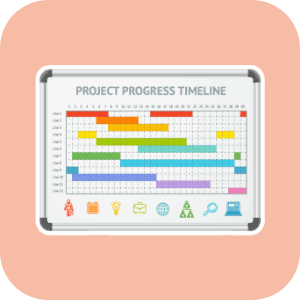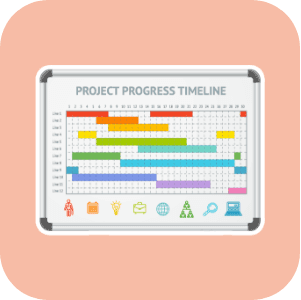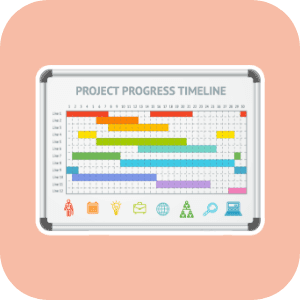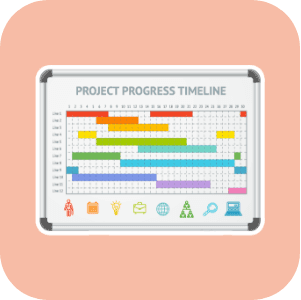
Developing your remote employee
Assisting employees in attaining new skills, or to improve on existing skillsets benefit both employers and employees alike.
Professional employee development is an important consideration for any business, and with remote work growing rapidly, companies are facing new challenges to continue employee development.
Paying attention to employee development helps employees to stay motivated, empowered, able to take on additional responsibilities and to feel adequately equipped to do their jobs well.


In fact, employee development is becoming such an integral part of company culture, that a survey conducted by The Harris Group found that 70% of employees in the USA are somewhat likely to leave their current jobs to accept an offer from a company that offers employee training and development.
But with remote work being here to stay, how can a business effectively engage with its remote employees and assist them in their professional development?
1. Company Culture
Many businesses realise that company culture is a huge contributing factor when prospective employees need to decide which company they prefer to work for. Consistently building a healthy company culture can sometimes get overshadowed with other business interests, but it should be a top priority.
During the pandemic, many businesses shut the office doors to work from home – and most businesses have continued to follow a remote or blended in-office/work-from-home model. The leaders who follow a blended workplace need to make sure that remote workers aren’t a case of “out of sight, out of mind”. Instead, leaders need to develop an inclusive company culture that values remote employees in the same way as in-office employees.


1.1 Aim to deliver employee-first solutions
During the pandemic, it became evident that people seek flexibility in terms of when, how, and where they work. We’ve learned that being physically in the same space isn’t necessary for development, trust, or brand advocacy. So, when considering how to include remote workers into company culture, it’s vital to ask, listen, adapt, and iterate in order to create employee-centric and human-first solutions.
1.2 Communication is key
The regular interactions of the company’s employees communicate the company’s culture. Where formerly a nod and a grin in the corridor sufficed, each remote employee today needs to frequently be acknowledged, whether it is through a phone call, email, or video chat. Remember to include remote staff in any meetings where they would typically be present – especially if a blended working model is followed.
1.3 Assign leadership roles to remote employees
Leaders frequently mentor staff by providing advice and guidance. Sponsoring them by providing significant opportunities to step up in a visible way, on the other hand, has a greater impact. Sponsorship is frequently associated with diversity and inclusion initiatives, but it also applies to remote workers. Request that remote workers lead a meeting, take ownership of an effort, assist in the onboarding of new employees, and so on.
1.4 Create an online events and training
Building an online event and training schedule that is integrated into the culture to help guarantee that individual well-being and performance are balanced, is one technique to make remote workers feel like they’re a part of the company culture. These could be team building events, professional development training or online coaching sessions for remote and in-office employees.
2 Training and development tools
Training and development programs can increase productivity, improve morale, increase employee retention, and reduce hiring costs. If you have a strong and healthy company culture, employees are more willing to learn new skills and apply them in their jobs. Consequently, employee training and development programmes become even more valuable, since it directly influences the productivity, morale and motivation of employees, and in turn, the company’s performance.
Approaching training and development for remote employees can be a daunting task, so we’ve mapped out some guidelines to help you. There are numerous tools that companies use to implement and improve remote training and development, and below are some of the most important ones to consider:

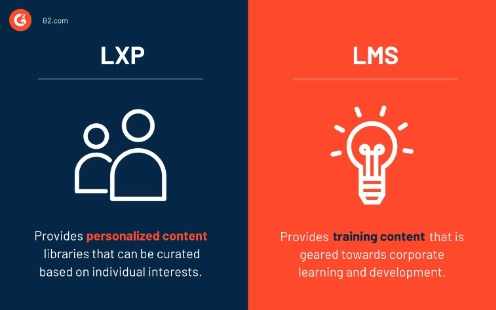
2.1 LMS
Learning management systems (LMS’s) are software solutions that companies use to deliver training. It’s a tried and tested method, and in higher education it’s a common mode of online content delivery. Using it for remote employee development enables easier access to course material, schedules, and collaborative sessions. The added ease of access and navigating the content allows employees to work through the content in an organised manner, clearing up tedious processes and simplifying the learning process. It also allows employers to track training progress,
2.2 LXP
Learning Experience Platforms, or LXS’s, are focussed on the mode of content delivery, engagement and creating a more interactive learning experience. The key difference between an LMS and an LXS is that LMS’s are aimed at housing, delivering and tracking training progress, where LXS’s are designed to create a more fulfilling and engaging learning experience. Consider an LMS as a platform that allows you to access the course content in a comfortable and easy to use platform, and that an LXS presents the content via more engaging features such as gamification, collaboration, leader boards and other engaging features.
2.3 Live video training tools
Motivating and engaging with remote employees to actively develop professionally can also be approached through live video training. These platforms enable employees to actively engage with the presenter, ask questions and feel included in a team – even if half of the company staff is at the office. It also allows for discussion and a wider learning experience for all members of the training session.
Conclusion
A healthy company culture enables employees that are remote to feel equally included in daily proceedings as those that are in-office. In return, employees are willing to go the extra mile for their employers and are also willing to upskill and improve professionally. Focusing on building a healthy company culture and providing employees with the tools they need to empower their learning, will improve employee performance, engagement, and productivity, and return the business will improve performance.




